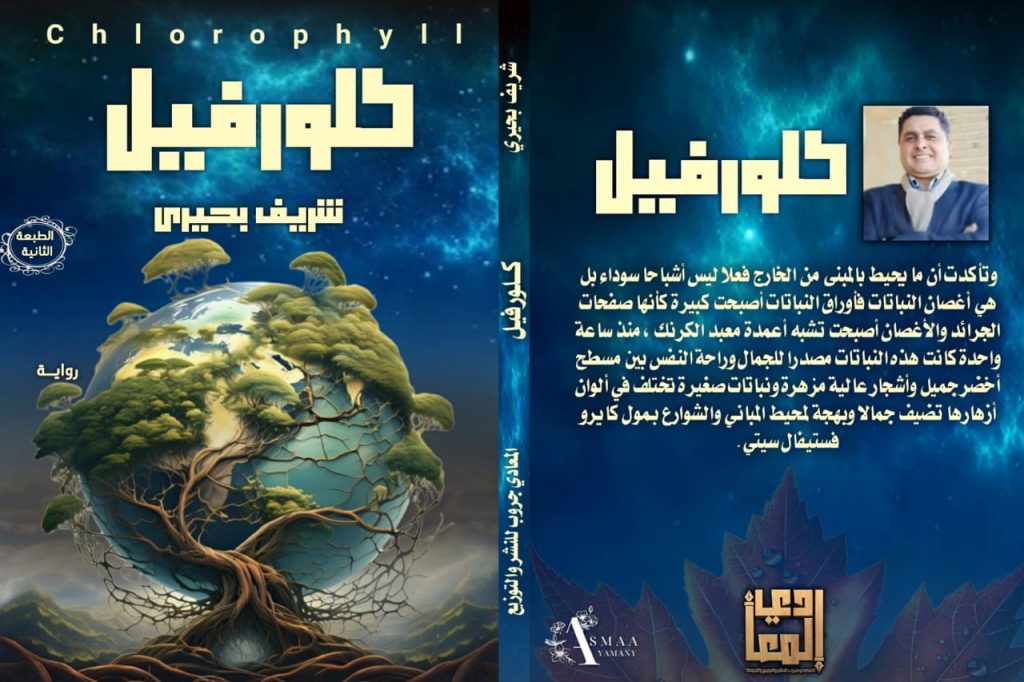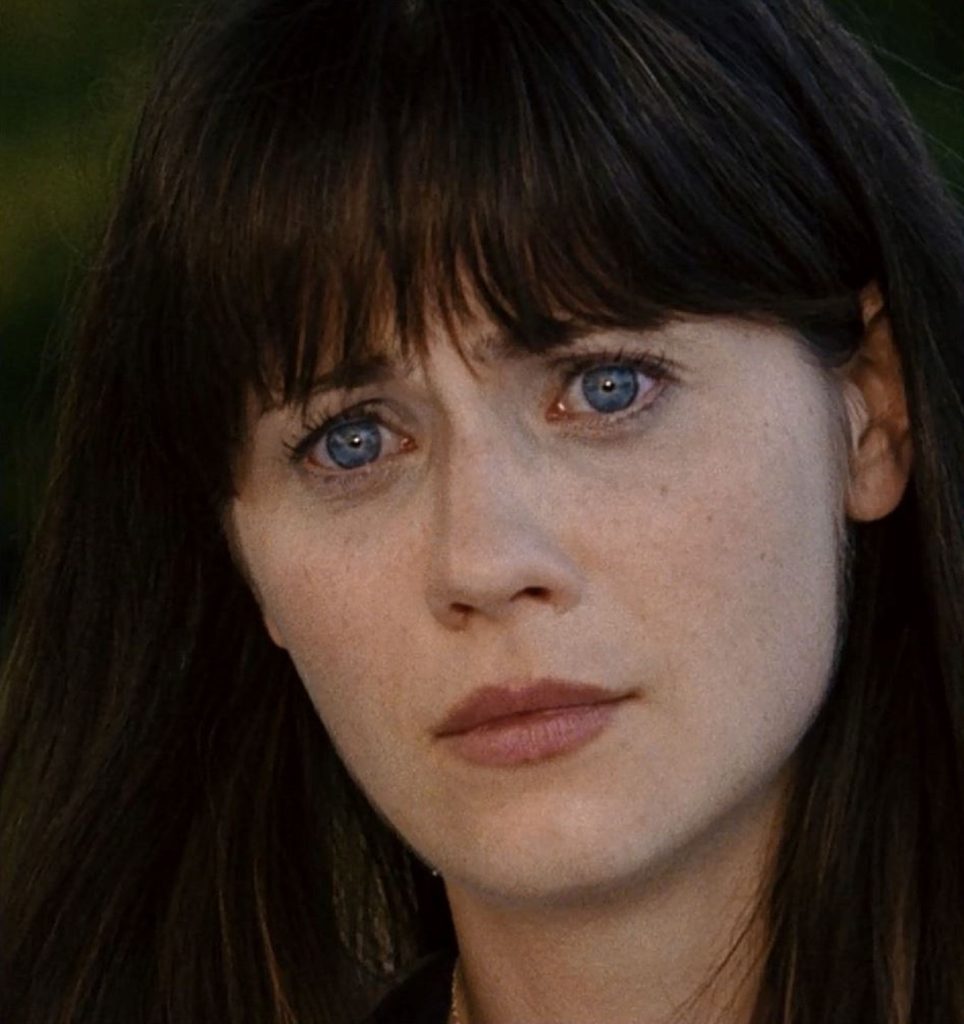
I just read Sherif Bihari’s SF novel Chlorophyll (2025). You know what, it only took me two days, and I’m a slow reader. It’s captivating but also fails to deliver. Still, its tells you so many other things worth pondering.
By Emad Aysha
The story technically begins, quite hilariously, in a mall. A truly upscale, large complex in the city of Madinaty, in New Cairo, a stone’s throw away from the country’s original capital, old Fatimid Cairo, and its newly designated administrative capital. The mall is under attack and surrounded by giant, growing plants!
The nominal hero, Ezz, is there to meet his fiancée, Lamyaa. They’re planning to have breakfast there, and then the plants outside the Mall grow and grow and engulf the place from outside, with leaves growing as large as newspaper pages and tree trunks becoming as thick as ancient Egyptian pillars. (Hint, hint).
While there, the two of them bump into an old-timer typing away on his laptop in a secluded room, and it turns out he’s in charge. He’s a scientist with a diabolical plan to take over the world, via plants; he needs Ezz to complete the project because Ezz is a brilliant AI specialist.

FLOWER POWER: Sherif Behari’s novel for your ultimate discretion. And our good friend Asmaa al-Yamani is responsible for the cover.
With plants and robots under control, humanity can be forced to humble itself and live in harmony with nature and with each other. With giant leaves, chlorophyll will produce a new biofuel that will put an end to pollution and fossil fuel depletion, while the plants will soak up all the excess carbon dioxide in the world, turning the oceans acidic.
They escape the Mall, and it turns out Lamyaa is part of the plot, using computer suggestions to get her fiancé Ezz here. (She programmed an avatar in his head that talks to him in his sleep, claiming to be him from the future!)
The story is actually told from the perspective of several people, not just Ezz, depending on the chapter, with other characters, including the manager of the Mall and the police chief, put in charge of this case. Did I mention the Mall is also owned by Gulf Arab countries, making this perplexing situation an international incident?
That’s the funny part of it, plus Ezz conversing with himself in his sleep. The problem again is the payoff. It fizzles out by the end. The scientist discusses how he has unlocked secrets in ancient Egyptian texts and inscriptions that enable the control of plants.
According to the scientist, the Egyptians during Khedewi Ismail's time had devised a plan to expand their country’s control over the Nile and its forested areas, thereby realising this dream.
Then the plants rebel and refuse to carry out the scientist’s orders, and everything goes back to normal, just like that. Ezz was also successful in getting the cops to track down and arrest the scientist and his evil apprentice, Lamyaa.
It all happens so abruptly and inexplicably; it’s neither convincing nor satisfying. Also, Ezz is not a very admirable or even sarcastic character. The other first-person perspectives are much more fun and informative, such as the mall chief, who has a nagging, argumentative wife due to her high blood pressure, or the various security personnel monitoring the cameras.
Also, the scientist’s plan to save the world via plants and make Egypt great again along the way is actually very admirable. One feels sorry for him and the plants, struggling to understand why the plants in poor neighbourhoods refused to cooperate, despite being maltreated.
What I particularly liked was how the novel illustrates, once again, the benign nature of the Egyptian sci-fi imagination. Plants attacking you is nightmare fuel, and no stranger to science fiction. Just check out the classic Day of the Triffids, the (John Wyndham) novel, movie and subsequent TV series.

BEYOND HER YEARS: Ashlyn Sanchez may be the younger of the two female leads in The Happening, but that doesn’t mean she’s less responsible.
We however have a very different attitude to plants in the Arab world, always seeing them as our friends and allies. Not so in the West, it seems. Even in outer space scenarios, in Arab SF, benign aliens tend to be either humanoid or vegetables.
Seeing plants in a good way makes perfect sense if you live in the desert, but there’s more to it than that. We see ourselves as 'sharing' this earth in a divine trust given to us by God, and we believe that the plants and animals were already designated to serve our interests. Therefore, there’s no reason to view them as competitors or encroachers on our territory.
More than that, plants are a part of nature to begin with. We don’t see nature as something 'out' there, to be tamed, but something we add to desolate areas that are unlivable. One of our purposes here on earth, as stated in Islam, is taameer al-ard (not so much civilising the land as working the land).
So, would we look at plants unfavourably?
Not so in Western SF and horror. Just look at the ultra-goofy The Happening (2008), where the plants come to perceive man as threatening and exude some airborne toxin that makes us kill ourselves.
Apparently, plants can actually do things like that, defending themselves against caterpillars with chemical messengers that attract wasps that prey on that particular species of caterpillar. (Sherif Bihari has pheromones spread from bigger trees to smaller trees, bushes, and grass after receiving electric signals from the mad scientist.)
The Happening isn’t actually as bad as everyone says it is, with lots of touching and tragic moments, like the two boys who get shot or the little girl’s parents, but the ending is too mixed to please anyone and doesn’t involve any real surprises.

YOUNG ADULT: Zooey Deschanel, the other lead actress, teaching Mark Wahlberg that there’s more to wives than mere ‘eye’ candy.
Same problem as in this novel. And in all fairness, the real culprit in the movie is human selfishness, exemplified by the crazy farm lady (and her Norman Bates type doll) and Zooey Deschanel’s character, her and her gorgeous, big, blue, expressive eyes. (Ashlyn Sanchez is great too; Mark Wahlberg is too angry for his own good.)
Still, the plants do better in the Egyptian novel, and one suspects they are a stand-in for the Egyptian people during the Arab Spring - saplings to a man, woman and hyperactive youth!






